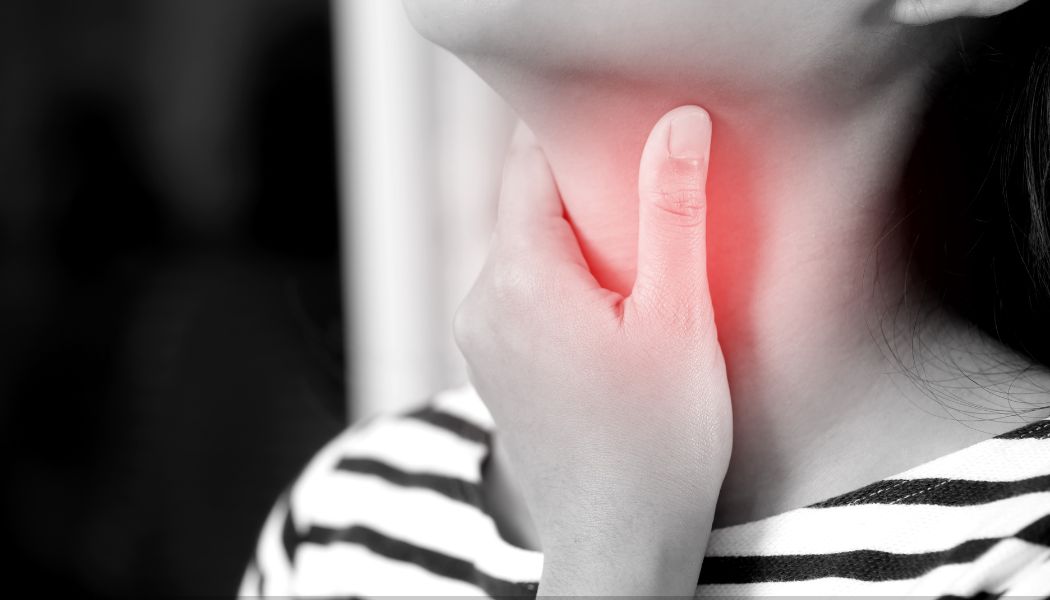From Symptoms to Solutions
Eosinophilic Esophagitis (EoE) is a chronic immune system disease that affects the esophagus. It occurs when eosinophils, a type of white blood cell, build up in the esophagus, leading to inflammation and damage. This condition can cause various symptoms, making it difficult for patients to eat and swallow. A newer treatment option, EOHILIA, is a prescription medication used to treat eosinophilic esophagitis (EoE). Let's explore the signs of EoE, the foods that can cause throat inflammation and the available treatment options.
The Link Between EOE and Asthma
Eosinophilic esophagitis (EOE) and asthma are both inflammatory conditions that share some common links. EOE, a chronic immune system condition affecting the esophagus, is often associated with allergic reactions and can coexist with asthma, a condition where the airways become inflamed and narrow. Research suggests that individuals with EOE are at a higher risk of developing asthma due to overlapping allergic pathways and inflammatory responses. Managing one condition can also help in managing the other, highlighting the importance of a comprehensive approach to treatment for those affected by both EOE and asthma.
Foods to Avoid that Cause Throat Inflammation
Certain foods are known to trigger EoE symptoms by causing inflammation in the throat. Avoiding these can help manage the condition:
- Dairy products: Milk, cheese, yogurt and butter.
- Wheat: Bread, pasta, cereals and baked goods.
- Soy: Soybeans, tofu, soy milk and soy-based products.
- Eggs: Whole eggs and products containing eggs.
- Nuts: Peanuts, almonds, walnuts and other tree nuts.
- Seafood: Fish and shellfish.
- Beef: Red meat and products containing beef.
- Certain fruits and vegetables: Tomatoes, citrus fruits and others known to cause allergies.
- Spices and condiments: Some spices and flavorings that may trigger symptoms.
- Processed foods: Foods with preservatives, artificial colors and flavors.
Signs of Eosinophilic Esophagitis
Recognizing the signs of EoE is crucial for early diagnosis and management. Common symptoms include:
- Difficulty swallowing (dysphagia): Feeling like food is stuck in the throat or chest.
- Food impaction: Food becoming lodged in the esophagus.
- Chest pain: Not related to heart problems, often due to esophageal spasms.
- Chronic cough: Persistent coughing that doesn't respond to typical treatments.
- Heartburn: Symptoms that don't improve with standard reflux medications.
- Abdominal pain: General discomfort or pain in the stomach area.
- Vomiting: Frequent, often without any clear cause.
- Poor appetite: Reduced desire to eat due to discomfort.
- Weight loss: Unintended weight loss due to difficulty eating.
- Regurgitation: Bringing back up undigested food.
Treatment Options for EoE
Effective management of EoE involves a combination of dietary changes, medications and sometimes procedures. Here are the main treatment options:
Dietary Management
- Elimination diet: Removing common allergens from the diet and gradually reintroducing them to identify triggers.
- Elemental diet: Consuming amino acid-based formulas that are hypoallergenic and avoiding all other foods.
Medications
- Proton Pump Inhibitors (PPIs): Reduce acid production in the stomach, helping to manage esophageal inflammation.
- Topical steroids: Swallowed medications that reduce inflammation in the esophagus, such as fluticasone or budesonide.
- EOHILIA: A newer treatment specifically targeting EoE symptoms, providing relief by reducing inflammation and easing swallowing difficulties.
Procedures
- Esophageal dilation: Stretching the esophagus to alleviate strictures and improve swallowing.
Lifestyle Changes
- Avoiding triggers: Identifying and avoiding environmental and food allergens.
- Eating smaller meals: Reducing the strain on the esophagus by eating smaller, more frequent meals.
EoE Insights
Eosinophilic Esophagitis (EoE) is a challenging condition that requires careful management through a combination of dietary changes, medications and sometimes procedures. Recognizing the signs of EoE and avoiding trigger foods are crucial steps in managing this condition. With newer treatments like EOHILIA, patients have more options to alleviate their symptoms and improve their quality of life. If you suspect you have EoE, consult a healthcare provider for an accurate diagnosis and personalized treatment plan.

